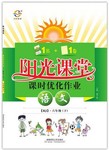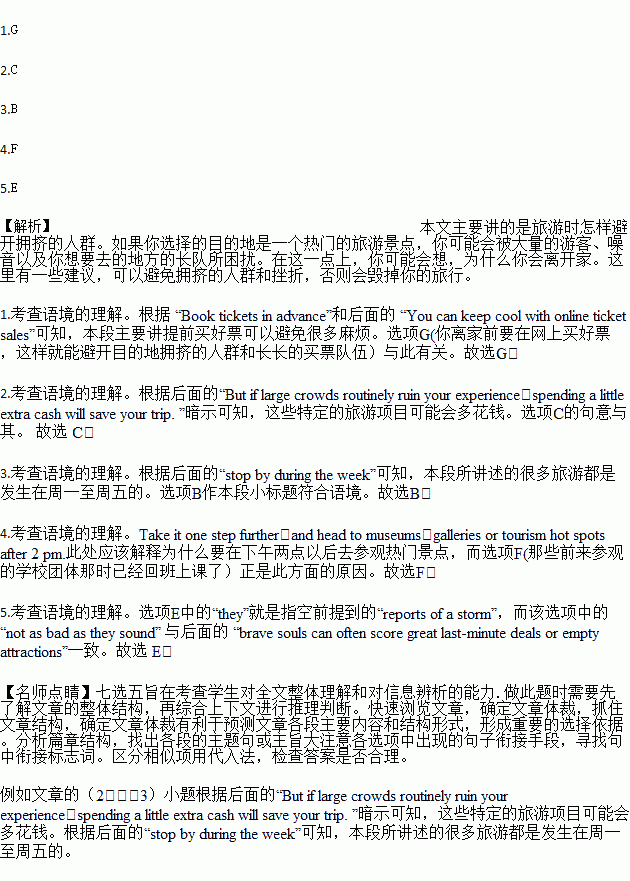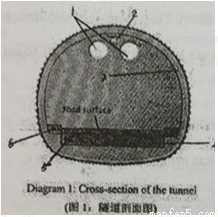题目内容
Tips on Avoiding Traveling Crowds
If your chosen destination is a hot tourist spot,you are likely to be bothered by masses of tourists,noise and long line ups at your intended site visits. At this point you might wonder why you ever left home. Here are some tips to avoid the crowds and the frustrations that might otherwise ruin your trip.
Book tickets in advance
1. Smart travelers can avoid the queue when visiting abroad-the London Eye, Britain's Houses of Parliament,Italy's Vatican Museums,and the Louvre in Paris. You can keep cool with online ticket sales.
Sign up for special tours.
Often special organizations get after-hours or behind-the-scenes access to famous places. You'll get a guided tour and beat the rush.2.But if large crowds routinely ruin your experience,spending a little extra cash will save your trip.
3.
For shorter lines,fewer people,and better opportunities to interact and enjoy the attraction,stop by during the week. In many cases,you'll have the place to yourself. Take it one step further,and head to museums,galleries or tourism hot spots after 2 pm.4.
Watch the weather
Some travelers often cancel their plans when there are reports of a storm on the approach. 5.By keeping an eye on weather broadcasts,brave souls can often score great last-minute deals or empty attractions.
A.Talk to people.
B.Visit during the week.
C.A note of caution-these tours can be costly.
D.Here are several ways to help you have a good trip.
E.However,sometimes they're not as bad as they sound.
F.Then,visiting school groups will have returned to class.
G.Purchase tickets online before you leave home,and skip the crowds and endless lines at your destination.
 阳光课堂课时优化作业系列答案
阳光课堂课时优化作业系列答案

 one was stabbing(刺) me in the chest with a knife over and over again.
one was stabbing(刺) me in the chest with a knife over and over again.